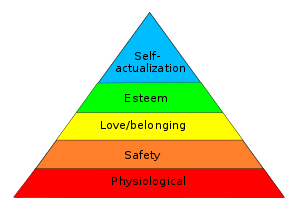In our modern economy, the definitions of work time and private needs have been blended and stretched. How do we accommodate?
When it comes to our lives, we are often very much affected by our generation. Traditionals saw work as a cornerstone of their lives, with hard work and loyalty rewarded with a paycheck, respect and life-long employment. Generations X and Y saw these values overturned, with work becoming something that supported your life, not being an end goal in itself. Employees and companies took repeated steps to separate, with employees reducing commitment and life-long loyalty, while companies proceeded to focus more and more on earnings over morals and increasing the yield they received from their “human assets”.
In modern times, Millennials are now the rising force, finding their way in the midstage of their career and often in leadership positions. Millennials have gone full circle, returning to a philosophy of work being a calling and something you should feel fulfilled by, while also valuing morality, commitment and personal development.
Companies are having trouble dealing with this; as more reports come out of workers being exploited, facing long hours without overtime, or companies ignoring unsafe working conditions or the environmental damage they are causing, they are coming in conflict with the ideals that millennials stand for.
One such conflict is in the supposed work-life balance, something which grew up in the age of Generation X, where the amount of attention and time devoted to work and personal life became a zero-sum game. Books were written and policies marked up for how to keep a healthy personal life and attention for your personal wellbeing while still being a career person and moving up in the world.
For millennials, this isn’t a zero-sum game at all. Work is something which gives you a purpose, which aligns with your ideals and helps you grow as a person. Personal life is where you love your family, settle in whatever lifestyle you chose, while finding fulfillment in a life well-led. On holidays, millennials choose to experience life in the world or learning something new, rather than visiting a sightseeing tour, tourist trap or the beach. Stimulating the mind is more important than resting it.
This means that similarly, millennials want their professional life to match their personal life. On the whole, this means that they are looking to find out who they are career-wise, not necessarily looking to rise as high as possible, but to find the right balance in responsibility, reward and challenge.
When HR Departments still measure “reward” as just money, titles and benefits, and believe “work-life balance” is about holidays and flexibile work hours, they are missing out on key ways of attracting and keeping millennial talent.
Reward
Being rewarded is all about making our jobs worth it. At the most basic level, we get paid to do our job. If this pay allows us to finance our lives, we feel well enough rewarded to keep doing the job. If we can’t, then we look for a better job, or educate ourselves to become eligible for a better job.
But the feeling of being rewarded can be achieved through many other ways as well. Our colleagues and managers appreciating our work, and saying as much. If we need to work late for an extended period, sending an “apology package” to our families to show you remember we had one. Remembering our development needs and actually suggesting trainings and workshops we can do to achieve them, rather than waiting for the next 1-on-1 appraisal. Instilling in all layers of the company the notion that we work for each other, not just the CEO, and that we do best when we all work together rather than ditching our work load on other people.
As you see, reward does not need to be just coming from the company. It can also come from our colleagues. Having great co-workers is a prime reason people stay at a company, even if it doesn’t feel otherwise very rewarding. Working together and achieving a common goal is a great motivator, and often makes stressful and difficult work worthwhile.
Similarly, we identify ourselves with the company. We want to be considered a part of it, not a subordinate cog in the machine. This means you need to have goals and beliefs as a company, and we have to agree with those. A company that ditches waste in the ocean, has inefficient factory processes, exploits people in third world countries – they are not going to count on a lot of love and support.
This will become more and more important as time progresses, and newer generations rise up in the company. Reward us with money, reward us with respect and reward us with a healthy corporate culture. But above all, make sure we can be proud of where we work, and not staying awake at night to balance a fat paycheck against being responsible for deteriorating the quality of life around the world.
Work-Life Balance
Since the longest time, the basis for work-life balance is time. Traditionally, this meant a fixed amount of work hours, trying to minimize overtime. It means getting vacation days to unwind and recharge between cycles of work, it means being compensated fairly for overtime with additional money or additional free days. It means others respecting when you have a day off or are sick.
In the last decade, more attention has been given for ways for people to be more flexible with their time. Working from home, shorter commutes, flexible work hours. These were all experiments in the “quantitative” balancing of work and personal lives. It’s all about numbers, and it says nothing about the quality of the time spent at either.
Increasingly, there’s attention for the ways in which work and personal lives affect each other’s quality. Everyone knows that if you’re working long hours, you’re too tired to do much in your personal time the rest of the day. If you’re stressed, you can’t just “turn off” at 5 o’clock and be all smiles again. If you are worried you might lose your job because the company’s not doing well or your job becomes redundant, you will lose sleep and your relationship is not likely to improve on that either.
Worldwide, attention for stress, depression and other mental health complaints has risen because world-wide, uncertainty and existential stress are increasing. I will once again point to Mazlow’s hierarchy of needs, like I have done before when discussing successful onboarding, and especially relevant to my earlier article on morale and motivation.
The Pyramid of Work Needs

The foundation of everything lies in our physiological needs. Food, water, air, shelter. Like in survival training, you learn that you cannot live long without these. You can survive three minutes of freezing cold or holding your breath; you can go three hours without shelter, three days without water and three weeks without food. In our jobs, this means that we need to receive money and support needed to pay our rent and food. Without this, we cannot survive our jobs.
Safety is the second level. It is critical to our survival, but on the longer run. We need a contract that gives us structure and protects our rights. We need to feel competent at our jobs, our work environment and process must not be unhealthy, and we need to feel that we will be doing this job for a while.
Belonging is where we find our supportive colleagues, being treated fairly and our need to identify with our company. As you can see, this shows that being part of a company you believe in, whose values are compatible with yours, is much more important than we give it credit for. When someone says “you just work for the company, you don’t need to care about them”, they are downplaying a critical element in how fulfilled we feel in our professional lives.
Esteem is our appreciation and titles. These are the performance reviews, the compliments and the appreciation we receive from others for the work we do. This can go hand-in-hand with belonging, as our own esteem in how well we do our job meshes with the overall success and reputation of the company. Doing your job well in a company that is known to pollute the rivers is a small consolation; rather we’d wish to do well in a company with a good reputation where customers and suppliers appreciate what we do.
Finally, self-actualization is where we are able to develop ourselves, follow trainings and workshops, and potentially receive promotions to higher functions. We also achieve this by feeling in control of ourselves and our jobs, the processes we manage, and the direction our (personal) lives are taking.
If our life-work balance is off, it means that we can’t get all the things we need from this pyramid. We need all of it, but not all of it needs to come from one element of our lives or the other. For example, my physiological needs are entirely met by my salary – so my work life. My sense of belonging might be primarily satisified by a loving family and a safe household from which to operate. If something is missing from one end of the scale (a job without esteem, or a personal life without love, we tend to seek it from the other parts of our life.
Dealing with Always-On
Our society is moving closer and closer to an “always-on” model, where our market runs 24/7, our professional and personal lives become blended together, and we can always be reached and called upon to do our work. This in itself does not need to be a bad thing, but it requires that the needs of the workforce are met to such a degree that it supports the additional time investment and stress that is expected to come with it.
Employees who we ask to take on such a burden need to be people in high spirits, we need to give them cause to believe in the company, its philosophy and products. They need to be rewarded and recognized for the extra work they put in, but the limits of their time and commitment must be respected.
This requires a pro-active people management philosophy, and is the reason I advocate that HR become a business partner, and a Chief HR Officer being assigned and brought at the table discussing strategy and management direction. To have a crew of dedicated, professional and skilled people means to invest in a structure supporting them, as well as the rewards required to keep their enthusiasm.
Consider your company, its values and future. Is yours a company worth investing this time and effort in? Are you happy with its processes, policies and how they treat the world and its people? If not, you may have a long road ahead of you, and others are sure to make use of this time to shine.
As AI and automation push human dedication to the brink, we will see a future where people are artistic, driven and competent. They will be the linchpins around which a future is created where we can straighten out the global market, protect our living space and be proactive about – not just conscious of – societal responsibility.
As an employee – if your company asks too much, for too little, there is no shame in setting boundaries. No sooner than people send a clear message on how far we’ve come along can we build this new system of Always-On and Corporate Pride.
